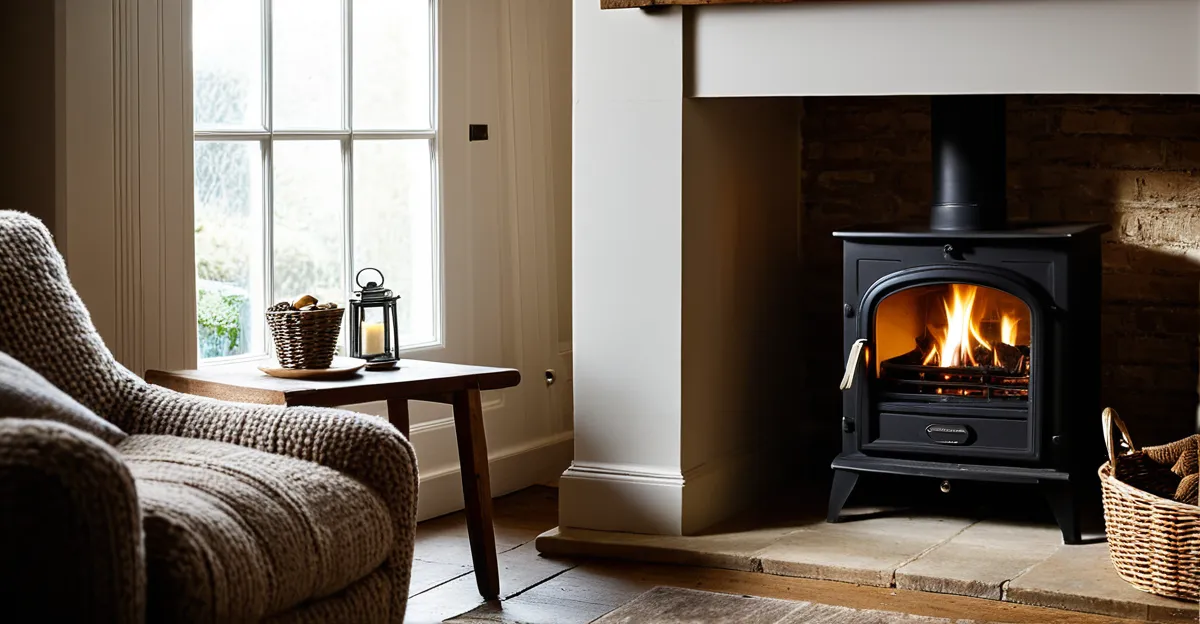Enhancing Home Comfort through Heating Adjustments
Creating a comfortable living environment is crucial, especially in the variable climate of the UK, where heating optimization plays a significant role. Proper thermostat settings are the cornerstone of efficient heating systems in UK homes. The optimal setting is often around 18-21°C for maximum comfort and energy efficiency. This precise adjustment helps keep heating costs down while ensuring that all areas of the home are adequately warmed.
There are several cost-effective methods to enhance heating efficiency. Regular servicing of boilers and heaters ensures they operate at peak performance, preventing unnecessary energy waste. Seal gaps around windows and doors to minimize heat loss, a simple yet effective measure. Additionally, investing in programmable thermostats allows homeowners to customize heating schedules, ensuring warmth when needed and conserving energy during absence.
Also read : How Does the Concept of Minimalism Influence Home Interiors in the UK?
Utilizing zoning in homes can significantly boost comfort and efficiency. By dividing the home into zones, homeowners can heat areas selectively, avoiding unnecessary expenditure on unused spaces. This tactic not only lowers energy bills but also contributes to a more comfortable living environment by tailoring heating to the specific needs of each room.
In summary, by focusing on heating optimization and smart thermostat settings, UK homeowners can experience improved comfort while also achieving significant energy savings. Simple adjustments and maintenance steps can make a substantial impact, providing both warmth and financial benefits.
In the same genre : Creative DIY Projects to Elevate Your UK Home Decor: Which Ones are Worth Trying?
Insulation Improvements for Energy Efficiency
Making insulation improvements is a cornerstone of achieving energy efficiency in UK homes. Insulation plays a vital role in maintaining thermal comfort by reducing heat loss, and there are several types suitable for UK homes. Loft insulation is particularly effective; it prevents heat from escaping through the roof, which is one of the most significant areas of heat loss in a home. Another option is cavity wall insulation, which fills the gap between walls and helps to trap heat within.
To address insulation issues, it’s important to first identify problem areas. Conduct a thorough inspection of the home to spot where heat is escaping. Areas like windows, doors, and attic spaces are usual suspects. Once identified, seal any gaps and consider upgrading existing insulation materials. Not only do these steps enhance insulation, but they also contribute to reducing energy bills by minimizing wasted energy.
The benefits of improved insulation extend beyond cost savings. A well-insulated home offers superior draft protection, leading to enhanced thermal comfort in all seasons. This creates a warmer environment in winter and keeps the home cooler in summer. Moreover, a reduction in energy usage positively impacts the environment by lowering carbon emissions, aligning with sustainability goals. Investing in better insulation is a practical and effective means to enhance overall comfort and efficiency.
Lighting Adjustments for Better Ambiance
Achieving the right ambiance in your home goes beyond aesthetics; it significantly impacts mood and comfort. One crucial element to consider is natural light. Homes that maximize natural light not only feel more open and inviting but also support mental well-being by enhancing mood. Therefore, arranging furniture to avoid blocking windows and using sheer curtains can help increase sunlight penetration.
When it comes to home lighting, selecting the right bulb types and placement is key. Energy-efficient LEDs are a popular choice, offering a variety of colour temperatures to match desired moods. Warm white bulbs, for instance, create a cosy atmosphere for relaxation, while cooler tones are suitable for task-oriented spaces like kitchens.
Cost is an important factor in improving lighting, but numerous benefits can outweigh the initial investment. By replacing outdated fixtures with modern, energy-saving options, homeowners can reduce electricity bills. Additionally, strategically placing lamps can transform dim corners, making rooms feel more spacious and welcoming.
In summary, thoughtful lighting adjustments not only enhance comfort but also contribute to energy savings. By incorporating these changes, you can improve both the ambiance and efficiency of your home.
Decluttering Spaces for Greater Comfort
Creating organised and clutter-free spaces can significantly boost comfort within a home. The psychological benefits of decluttering are substantial, providing a sense of calm and control over one’s environment. An organised home not only promotes comfort improvement but also enhances productivity and reduces stress levels.
Strategies for Effective Decluttering
For many UK homeowners, effective space optimization begins with prioritising what truly matters. Start by sorting belongings into categories: keep, donate, or discard. This approach helps streamline decisions and make the process more manageable. Embrace a systematic room-by-room method to avoid becoming overwhelmed, focusing on frequently used spaces first. Consider the utility of each item, and eliminate duplicates or those no longer serving a purpose.
Storage solutions play a critical role in maintaining organised spaces. Opt for multifunctional furniture, such as ottomans with internal compartments or beds with built-in drawers. These solutions maximise available space without sacrificing style or functionality.
Long-term Advantages of Organisation
The benefits of maintaining an organised environment extend well beyond initial clean-up. An orderly home reduces time spent searching for items, leading to increased daily efficiency. Furthermore, a clutter-free space can enhance home decor, allowing design elements to stand out rather than being overshadowed by unnecessary items.
Regular maintenance is key. Allocate time each month for quick decluttering sessions to prevent accumulation. By establishing good habits, homeowners can enjoy a consistently neat and welcoming home.
Enhancing Indoor Air Quality
Improving indoor air quality is essential for creating a healthy and comfortable living space. Many UK homes face common indoor air pollution problems. Several sources contribute to this issue, including cooking fumes, cleaning products, and inadequate ventilation. Each source can significantly impact the air quality, leading to health concerns.
To mitigate these issues, enhancing ventilation and air circulation is crucial. Consider installing extractor fans in areas prone to moisture, such as kitchens and bathrooms, to reduce humidity levels. Regularly opening windows can help disperse pollutants and circulate fresh air throughout the home. Furthermore, adopting natural ventilation methods, like cross-ventilation, allows fresh air to move more efficiently indoors.
Health benefits arise from improved air quality. Enhanced indoor environments contribute to better respiratory health, reducing risks associated with pollutants like mould and dust mites. Cleaner air can also reduce allergy symptoms and improve sleep quality, ultimately leading to a more pleasant and healthful living space.
By focusing on these ventilation solutions and making mindful upgrades, homeowners can achieve healthier air that supports overall well-being. Simple changes in daily routines can yield significant improvements, making the home a sanctuary of comfort and health.
Additional Small Changes That Make a Difference
In the pursuit of a comfortable home environment, minor improvements can make a significant impact. These simple home adjustments can considerably enhance overall comfort without breaking the bank. Consider replacing old furniture with ergonomic designs to improve relaxation and support. Adding soft rugs in living areas not only brings warmth during chilly months but also acts as a visual enhancement, creating a cozy ambiance.
Furthermore, subtle comfort enhancements like updating cushions, throws, and curtains can refresh a space effortlessly. Opt for materials that add texture and layers of comfort, like plush fabrics that are both warm and inviting. These changes are reasonably priced and can significantly influence the mood and feel of a room.
For those with a focus on style, integrating smart home decor techniques can rejuvenate interiors. Utilize mirrors to reflect natural light, brightening rooms and giving the illusion of more space. Painting walls in light, neutral tones can promote an airy atmosphere, making spaces feel larger and more welcoming.
Lastly, incorporate plants to improve air quality while adding a touch of nature. Plants like spider plants and peace lilies are known for their air-purifying properties and thrive indoors, providing both aesthetic and health benefits. These small changes collectively contribute to a harmonious and pleasant living environment, tailored specially for the varying needs of UK homeowners.






